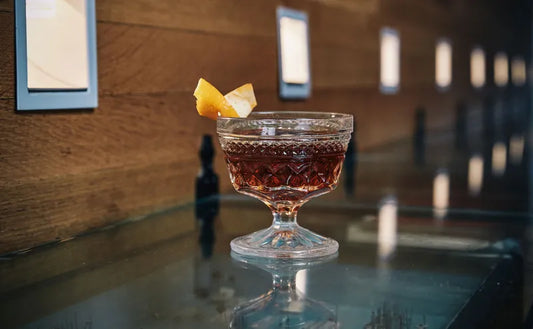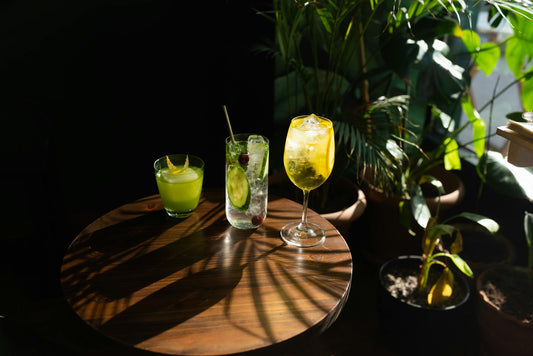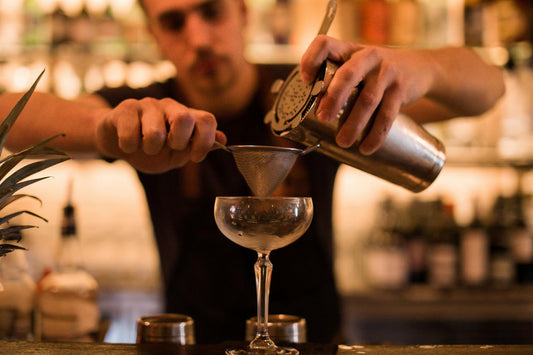Bora Bora Brew: A Tropical Cocktail for Summer Fun
SWEET to SOUR
(1-10)
STRENGTH
(1-10)
CALORIES
STANDARD
DRINKS
Note: these values are approximate and may vary dependent on the ingredients and brands you use.
More information...
The Bora Bora Brew is a delightful cocktail that transports you straight to a tropical paradise with every sip. This vibrant drink is a perfect blend of refreshing pineapple juice, a hint of sweetness from grenadine or pomegranate syrup, and the zesty kick of ginger ale. With its bright colors and fruity flavors, it’s no wonder that the Bora Bora Brew has become a favorite among cocktail enthusiasts looking for a taste of the tropics.
To prepare this cocktail, you start by selecting a Collins glass, which is ideal for showcasing the drink's beautiful layers. Pre-chilling the glass ensures that your cocktail stays refreshingly cold, enhancing the overall drinking experience. The preparation is straightforward yet satisfying: you shake together 90 ml of pineapple juice and 5 ml of grenadine with ice, allowing the flavors to meld together. The grenadine adds a lovely blush to the drink, creating a visually appealing contrast against the bright yellow of the pineapple juice.
Once shaken, the mixture is strained into the ice-filled Collins glass, and the drink is topped up with Thomas Henry Ginger Ale. This particular ginger ale is known for its high-quality ingredients and robust flavor, which complements the sweetness of the pineapple and grenadine perfectly. The result is a cocktail that is not only refreshing but also has a delightful effervescence that tickles the palate.
The Bora Bora Brew boasts an alcohol strength of 0.62% alc./vol., making it a light option for those who want to enjoy a drink without the heavy effects of stronger cocktails. With only 120 calories per serving, it’s a relatively guilt-free indulgence, especially when compared to many other cocktails that can be laden with sugar and calories. This makes it an excellent choice for summer gatherings, beach parties, or simply enjoying a relaxing evening at home.
In terms of taste, the Bora Bora Brew leans towards the sweet side, thanks to the pineapple juice and grenadine. However, the ginger ale adds a refreshing spiciness that balances the sweetness, preventing it from becoming overly sugary. This balance makes it appealing to a wide range of palates, from those who prefer sweeter drinks to those who enjoy a bit of zest.
Nutritionally, the Bora Bora Brew is relatively light, containing only 0.6 grams of pure alcohol per serving. This low alcohol content means that you can enjoy a couple of these cocktails without feeling overwhelmed, making it a perfect choice for social occasions where you want to keep the mood light and fun.
The Bora Bora Brew is not just a drink; it’s an experience. It evokes images of sandy beaches, swaying palm trees, and the sound of waves lapping at the shore. Whether you’re sipping it poolside or at a summer barbecue, this cocktail is sure to bring a taste of the tropics to your gathering. So, gather your ingredients, shake up a Bora Bora Brew, and let the good times roll!



